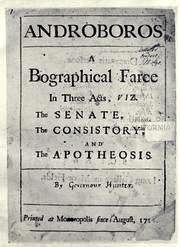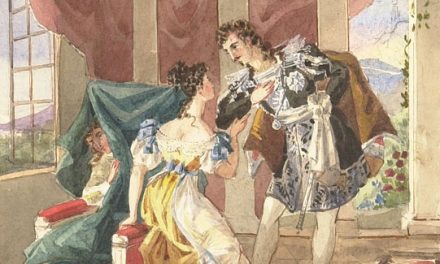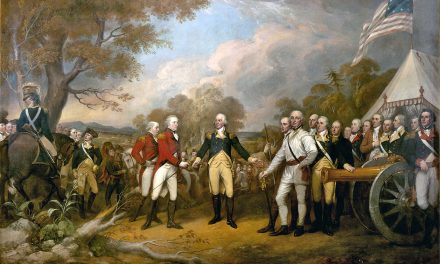
Anne I of England–the inadvertent originator of American drama in her salad days.
On this day–August 1–in 1714, England’s Queen Anne I died, marking the end of the troubled Stuart dynasty while indirectly ushering in the start of theatre in British North America. It is well-known that Anne’s life was especially troubled, suffering from chronic ill health and dying childless at the age of 49 after seventeen pregnancies. Her premature death led to the arrival of the Hanoverian king, George I, along with a shift in government. After years of Tory rule in Parliament, Anne’s death resulted in a Whig majority—the first since 1710.
Among those to benefit from this change was the colonial governor of New York, Robert Hunter, a staunch Whig and a close friend to many of London’s most famous writers and satirists. Hunter, who had undergone years of torment from his colonial adversaries, was under siege by the summer of 1714. The New York Assembly had refused to pay his salary or reimburse him for his resettlement of thousands of Palatine immigrants up along the Hudson River. The Church of England’s representative in the colony, the Reverend William Vesey, blamed Hunter for the confiscation of church lands and for failing to support the recommendation of a disgraced minister from Connecticut, causing a rift in the city’s Trinity Church leadership and tension among the colony’s wealthy merchants. As a Whig, Hunter had little political leverage against his enemies and detractors. But when Anne died, all that changed.

Title page of America’s first play with “since August 1st, 1714” in the lower right-hand corner.
With the Whigs back in control in London, Hunter was finally able to reign in the various rival factions and bring relative stability to New York. It was during this time that Hunter sat down with his close friend and confidante, Lewis Morris (Chief Justice of the New York Supreme Court), and co-authored a blistering satire of his political enemies. The work, entitled Androboros (and published in the spring of 1715), became the first piece of dramatic literature both written and printed in the New World. It remains America’s earliest extant play.
While most histories of theatre list 1714 as the publication date (based on the last line found on the work’s title page), the phrase “since 1st August 1714” is not a reference to publication, but rather an acknowledgement that only after Anne’s death on that date could the play have been written. A careful reading of the script shows several historical events that did not occur until 1715, proving the play’s later publication date. In light of current events, it is interesting to note that American theatre got its start in the form of a harsh satire aimed at ridiculing and exposing the corruption among New York’s political and religious elite. And, curiously, it came about because largely because Queen Anne died young and childless.
This post was written by the author in their personal capacity.The opinions expressed in this article are the author’s own and do not reflect the view of The Theatre Times, their staff or collaborators.
This post was written by Peter Davis.
The views expressed here belong to the author and do not necessarily reflect our views and opinions.


















